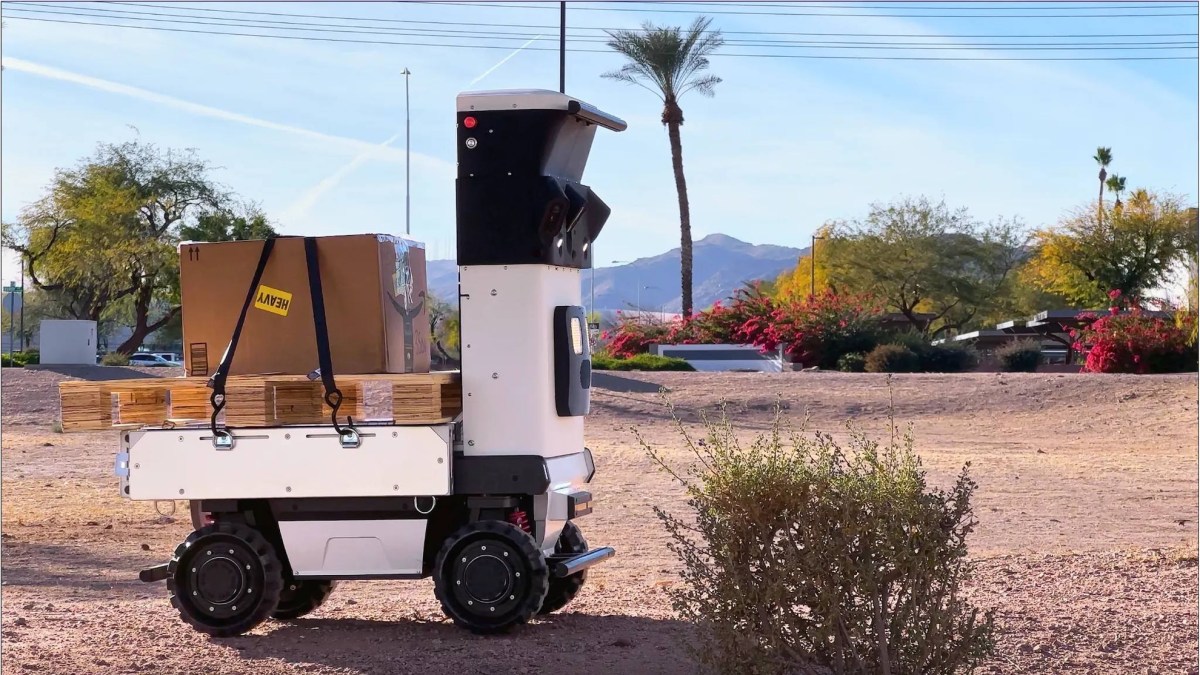Independent robot startup KatkenKnown for its four-wheeled robots serving food on university campuses and the bustling streets of Tokyo, it has found a new area of focus: industry.
Cartken co-founder and CEO Christian Bersch told TechCrunch that when applying its delivery robots to industrial environments, they were always in his mind when building a startup. Cartken took a closer look when the company started using its robots in factories and laboratories.
“We found that there is actually a real huge demand for industrial and field use cases,” said Bellch, who co-founded the startup with other former Google engineers behind the Bookbot project. “Sometimes there is more direct value to companies that optimize their material flow or production flow.”
In 2023, the startup landed its first major industrial client, the German manufacturing company ZF Lifetec. Initially, ZF Lifetec used its existing delivery robot, called the Cartken Courier, which can hold 44 pounds and is similar to an igloo cooler on wheels.
“Our food delivery robots started moving production samples around, and that quickly became our busiest robot,” Belch said. “That’s what we said, hey, like the real use cases and the real market needs, that’s when we started targeting that segment more and more.”
At the time, Cartken was still moving forward with the Personnel business, including partnerships with Uber Eats and Grubhub for last-mile delivery operations on U.S. college campuses and Japan.
But early success in ZF encouraged entrepreneurial founders including Jack Stellman, Jonas Witt and Anjali Naike to expand their business model. Bersch said it was not a challenge to convert Cartken’s robots from food delivery to industrial environments. The AI behind the robot has been trained for years of food delivery data, and the equipment is designed to travel across a variety of terrain and weather conditions.
TechCrunch Events
San Francisco
|
October 27-29, 2025
This means that the robot can drive between indoor and outdoor settings. Thanks to data collected from food from Tokyo Street, robots are able to react and manipulate around obstacles.
Cartken, which has raised over $20 million from 468 Capital, Incubation Fund, Vela Partners and other venture capital firms, has begun building its fleet of robots to reflect its hub for industrial companies. The company released the Cartken Hauler earlier this year, a larger version of the Cartken Courier that can hold up to 660 pounds. The company has also released the Cartken Runner designed for indoor delivery and is working on something similar to a robotic forklift.
“We have a parameterized navigation stack that can be used for different robot sizes,” Bersch said. “All AI and machine learning and training are like moving directly to other robots.”
Cartken recently announced it is deepening its four-year relationship with Japanese automaker Mitsubishi, which initially helped the company get the required certification to operate its delivery robots on the streets of Tokyo.
Melco Mobility Solutions, a company under Mitsubishi Umbrella, just announced that it will buy almost 100 cartken Hauler robots Used for Japanese industrial facilities.
“We’re sure to see a lot of appeal from all kinds of industrial and corporate sites, from car companies to pharmaceuticals to chemicals,” he said. “All of these companies usually have people moving things from one building to another, whether it’s handmade, trolleys or small forklifts, which is really what we’re aiming for.”
Belch said Katken will continue its last-mile delivery business for food and consumers, but it won’t expand it, adding that they still have a lot of testing on new features on these existing last-mile delivery routes.
